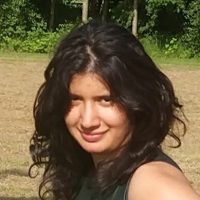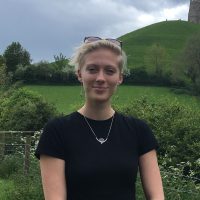Our four-day Biology A Level Easter crash courses are designed to get Year 13 students up to speed for their final exams. These London-based classes are taught by experienced teachers with an in-depth knowledge of what it takes to succeed at A Level.
During the course, students will revisit all of the key topics within A Level Biology, solidifying their knowledge and filling in any gaps in their understanding along the way. Our biology teachers will also assist students in developing their exam technique, ensuring they have the necessary skills to maximise their marks when they come to sit their paper.
When students join our in-person classes, they’ll receive a tailor-made selection of revision materials. Professionally printed and bound, these high-quality resources have been created to enhance the revision process both during and after the course.
Our Easter crash courses are a great way to take revision up a notch, giving students the knowledge, skills and confidence to succeed in their summer exams.
If you need help deciding if you will benefit from this course you can contact us. Alternatively, you may prefer to book 1-2-1 tuition instead.
Classes are from 10am to 5pm. Registration starts from 9.45am.
There will be a 1 hour lunch break and a couple of 10 minute breaks in the morning and afternoon.
We’re lucky to work with a fantastic team of professional tutors and teachers, many of whom have taught at some of the best state and independent schools in the country. We’ve hand-picked them not only for their glowing academic credentials but also for their innovative teaching styles, engaging personalities, and inspiring enthusiasm for their subjects.

Jane works as an A Level Biology teacher in West London and holds a first-class degree in Pharmacology. Before making the move into education, she worked in the technology industry.
Jane takes a straightforward, confidence-building approach to teaching, ensuring biology content is easily understood and synoptic knowledge can thrive – along with the skills to apply it to challenging concepts. In addition to this, her experience as an examiner helps give her students the edge when it comes to polishing their exam technique and achieving high grades.

Daisy holds a BSc from UCL in Immunology, Infectious Diseases and Cellular Pathology, and works as a junior doctor in Brighton. She’s also an experienced tutor, teaching science and maths to students of all age groups. Helping others get into the medical field is a particular passion of hers, so much so, she runs our UCAT and Getting into Medicine courses.
Daisy’s engaging teaching style and approachable nature ensures lessons are always fun and that students feel comfortable fully participating in discussions. She ultimately aims to help her students develop in-depth subject knowledge and a polished exam technique, so they feel confident going into their exams.
Haven't found what you're looking for? Please get in touch with our friendly team!
Our in-person A Level Easter revision courses are held at Pimlico Academy, London. This venue is wheelchair accessible and conveniently located for those arriving by public transport.
Our courses are not residential. However, there are plenty of places to stay in London to suit every budget. Our courses are easy to get to by public transport which means you’ll have lots of flexibility when deciding where to stay.
If you can’t see your exam board then we are afraid we aren’t running a course for it. However, this doesn’t mean that one of our courses won’t be useful for you. Contact us to see which course is more closely aligned with your exam board.